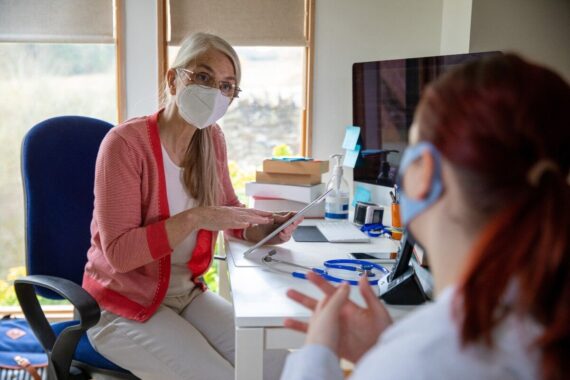GPs should provide regular pelvic mesh monitoring to avoid complications, a new report by the patient safety commissioner has recommended.
Dr Henrietta Hughes, who is a practising GP and was appointed as the first-ever patient safety commissioner for England in 2022, was asked by the Government to look into a potential compensation scheme for those injured by pelvic implants or affected by the sodium valproate scandal.
Her report found that thousands of women, children, and families ‘have been harmed’ by these two medical interventions and argues that there is ‘a compelling case’ for the Government to award them compensation.
The report published last week recommends the Government creates a two-stage financial redress scheme – an interim scheme to enable the identification of all those harmed, ensuring patients receive financial redress quickly – and a main scheme.
Dr Hughes said that as part of the review she heard from patients on the need for ‘better and more regular’ proactive monitoring of their mesh in advance of any recognisable mesh complications, where there appears to be a gap, and that this should be done by specialist centres ‘in conjunction with GPs’.
Dr Hughes said: ‘Over the years, while these patients have been suffering, I have seen other healthcare scandals in this country rightly receive recognition and redress.
‘Fairness demands that those harmed by valproate and pelvic mesh receive the recognition and redress to meet their needs.
‘The past cannot be changed. But the provision of redress gives the government an opportunity to demonstrate that the concerns of these patients have been heard, listened to and that their needs are being prioritised.’
The report also mentions a ‘lack of information available to GPs’, who ‘may not be aware’ of the complications of pelvic mesh or the option to refer to nine specialist centres in England.
Dr Hughes co-produced a resource with affected patients and healthcare professionals in May last year to ‘help support discussions with GPs’.
The resource includes a letter that patients can take to their GP explaining pelvic mesh and the known complications as well as the referral options, including setting out the possibility of a direct referral to a specialist mesh centre.
Pelvic mesh, used to treat pelvic organ prolapse and urinary incontinence in women, was one of three women’s healthcare treatments in a Government review of how the health system responds when patients raise concerns about safety in 2018.
This led to the publication of former health minister Baroness Cumberlege’s review into avoidable harm in July 2020, which looked at pelvic mesh, sodium valproate and the hormone pregnancy test Primodos.
Vaginal mesh was suspended across the UK in 2018 on the recommendation of Baroness Cumberlege as part of the Independent Medicines and Medical Devices Safety Review.
And around 20,000 women with an active prescription for sodium valproate received a letter in 2021 urging them to speak to their GP ‘immediately’ if they think they may be pregnant.














